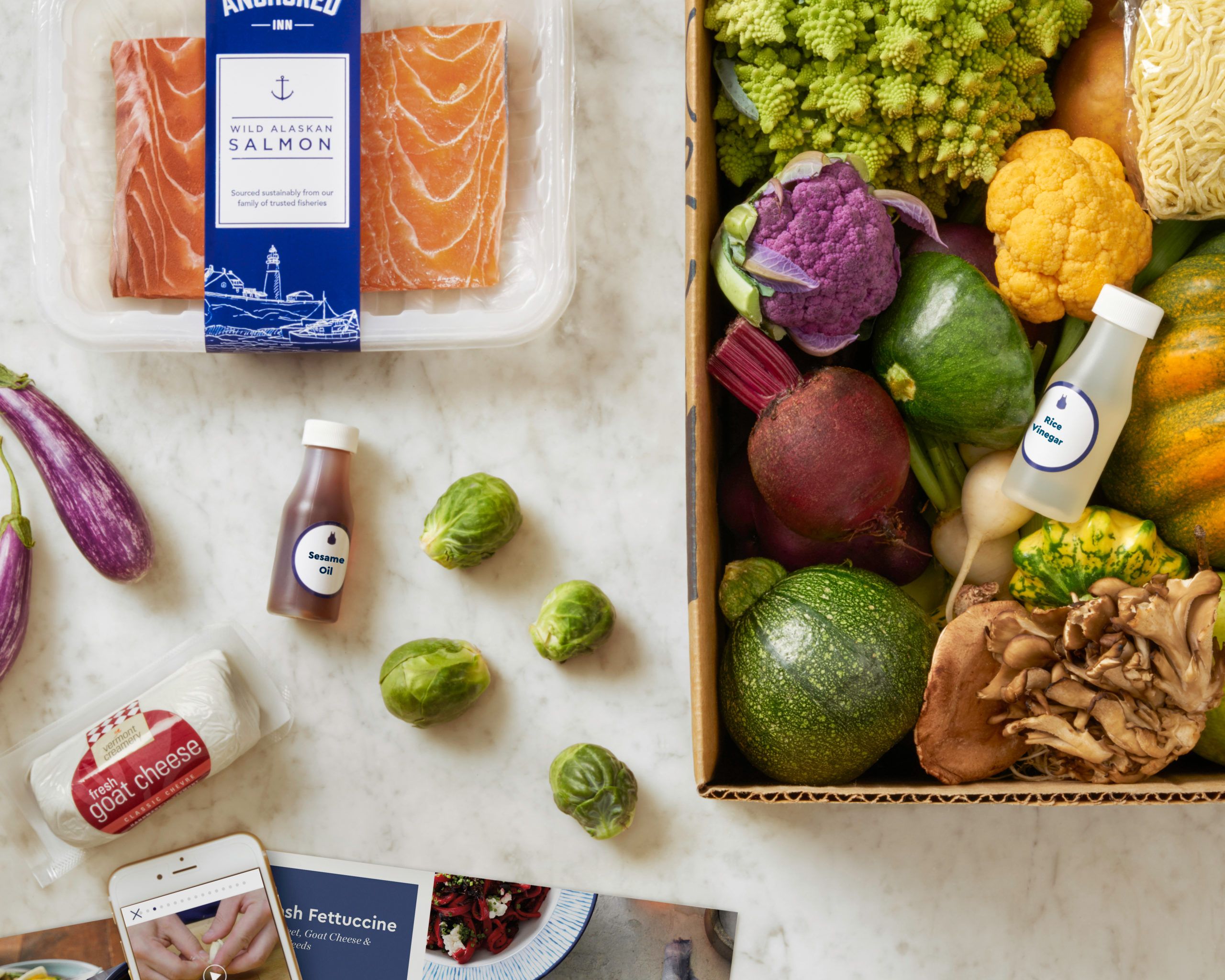When the news broke that meal-kit company Blue Apron was going to launch a $100 million IPO on the New York Stock Exchange (APRN), headlines emphasized the challenges the startup faces. Every news story mentioned the high-cost of customer acquisition and a recent uptick in losses for the five-year-old food tech company, which could make the decision to list look precarious.
The New York-based company ships boxes with pre-portioned ingredients and recipes directly to consumers at the start of the week at around $60 a box depending on the number of meals. It’s a common model now, and intense competition between the more than 15 actors in the space has led to expansive and expensive marketing efforts.
Digging into the financials
The issue of high customer acquisition costs is compounded by the admitted tapering of orders from existing customers over time. Blue Apron increased its first quarter revenue 42 percent to $425 million this year. But, the grocery industry broadly, and the meal kit delivery business even more so, is seasonal, with decreased orders in the summer months meaning the first quarter is likely to be their best.
Their total revenue for 2016 was up 133% year on year, but Blue Apron is still losing money. The company took a net loss of $54.9 million, up from $30.8 million in 2014. The first quarter saw a net loss of $52.2 million – likely attributable to an increase in marketing costs.
On the flipside, gross margins are generally improving going from 23% in 2015 to 33% in 2016, although marketing spend during the busiest season likely contributed to a gross margin dip to 31% in the first quarter of 2017.
So the financials are a mixed bag, but with a tentatively fair climate for IPOs, this well-known consumer brand may be able to lean on customers to bolster the float.
Interestingly, two of Blue Apron’s direct competitors have also started to put the pieces of an IPO in place. Berlin-based HelloFresh made moves toward listing on the Frankfurt exchange last year, but seems to be in a holding pattern after lowering its valuation by 20% to €2 billion ($2.24m) late last year after raising a $88.5 million Series G.
San Francisco-based Sun Basket also hired bankers in preparation to list earlier this year and was valued at $300 million in February after its $15 million Series C raise, which brought its total fundraising efforts to $55.3 million.
Is there any virtue in going first?
Analysts say that the move likely has more to do with the financial particulars of Blue Apron itself than any desire to be first.
“A likely driving factor — more than being ‘first meal kit to go public’ — is that the investors are looking for liquidity; there is an open IPO window currently so they need to move fast because markets are fickle these days; and they think the business metrics and growth story are strong enough to withstand public scrutiny,” said Brita Rosenheim, a partner in California-based food and agtech advisory group The Mixing Bowl.
Plus, valued most recently at $2 billion, there aren’t many potential acquirers out there, according to AgFunder’s Rob Leclerc. “Given its earnings, an acquisition is likely too rich for most stodgy retailers. There are not a lot of people who can pay that kind of money and because it’s not yet a threat, they’re not going to feel the pressure.”
Good or bad for Blue Apron competitors?
Blue Apron, and its competition, both stand to gain a lot if the IPO goes well, but could also see a chunk taken off their valuations if it goes badly, according to Chuck Cotter, partner and “deal advisor” at Holland & Hart law firm.
Cotter said that a good open and robust continuing performance will serve as a big green light not only for Blue Apron’s competition, but other players in the general grocery space that may be considering getting into meal-kits and direct-to-consumer distribution.
“If there’s a disappointing pricing that they still go through with, I imagine it will both negatively effect the potential IPOs of their competitors and the ability of their competitors to raise money in the private markets at the valuations that they may have been looking for,” he told AgFunderNews.
Rosenheim and Cotter both said that Blue Apron could also be looking for more liquidity in order to make more acquisitions. Earlier this year it acquired BN Ranch, a regenerative cattle-raising company started by famed rancher Bill Niman with operations in California and New Zealand.
Furthermore, Blue Apron’s S-1 filing revealed that one purpose of the IPO will be to pay down debt. So, with few potential acquirers, debt payments coming due, and perhaps more acquisitions, makes the first meal kit listing look like more of an inevitability than a gutsy gambit.
Blue Apron declined to comment citing SEC blackout regulations.





